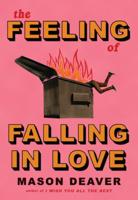Publisher's Synopsis
Excerpt from The Rural Life of England, Vol. 1 of 2
I am bound not to pass over without notice. In availing myself of occasional passages from the works of cotemporaries, I have but one simple rule; and that is, uniformly to acknowledge the loan. It is a glorious rule, to do as you would be done by: and I regret to have to complain, that that golden rule has not been very nicely observed towards me. The Book of the Seasons has been, by several writers, freely drawn upon for descriptions of nature, and the sea sons, without the slightest acknowledgment. I believe every original anecdote and trait of birds and other animals, has been extracted, and repeated so fre quently, without any intimation of whence they are borrowed, that any one now reading the Book of the Seasons for the first time, would naturally imagine that I myself had borrowed them of others. In one of the last volumes of Time's Telescope that ap peared, after that interesting work had ceased to be under the management of my worthy friend John Millard, free and unacknowledged use of such things was made. In one of the Companions to the British Almanack, the tables of the migrations of birds which had cost me much labour to construct, were taken entire, and in the following volume the borrower feli citated himself on being the happy author of these tables! In one of the books of Mr. Jesse, I observed the anecdote of the landrail, taken from the Book of the Seasons (p. Without any acknowledgment whence it came, and probably without his knowing it.
About the Publisher
Forgotten Books publishes hundreds of thousands of rare and classic books. Find more at www.forgottenbooks.com
This book is a reproduction of an important historical work. Forgotten Books uses state-of-the-art technology to digitally reconstruct the work, preserving the original format whilst repairing imperfections present in the aged copy. In rare cases, an imperfection in the original, such as a blemish or missing page, may be replicated in our edition. We do, however, repair the vast majority of imperfections successfully; any imperfections that remain are intentionally left to preserve the state of such historical works.










